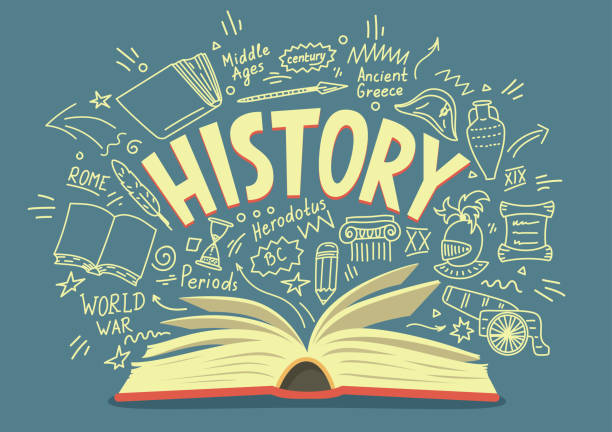What Does It Mean to be a “History Person”?

In my junior year of high school, I remember getting into an argument with my mom while sitting at the bus stop one morning. I can’t remember if I was actually failing AP US History or if I was just consistently doing poorly on the assignments, either way, my mom was upset with me because in her eyes, it should be easy–“everything already happened.” It was difficult to articulate to her that the reason why I was struggling was because the way history was taught to me, and how lots of history is taught in schools, was the lecture-heavy name and date memorization of events and people, with the occasional necessity of knowing why x caused y event.
What I told her instead, and what I’ve been telling people for years, is that I’m just “not a history person.” I wasn’t like my mom, who would look at every plaque in every city we ever visited, and seemed to know all kinds of things about US history that I couldn’t remember or wasn’t particularly interested in. I certainly wasn’t like my dad, who knew the most random history facts, usually related to obscure Indiana history and automotive/airplane/ship history. But since starting at Tufts and getting my job at the Freedom Trail, I’ve had to reevaluate my stance on what it means to be a “history person.”
For most of my life I’ve thought of history as a dry subject. Maybe every so often it was interesting, but for the most part, it just seemed like names and numbers to me without any real connection to myself or the world around me. I may have been an education major in college, but I did take copious English classes and that was where I really clicked–these were stories. They didn’t have to be real people, or real events, but there was always a truth to them, and that was what connected with me.
What I didn’t realize at the time or earlier in my life, was that I had been learning history against my will and having fun while doing so on multiple occasions. The most memorable instance has to be what my family refers to as “the Great American Road Trip” which was a road trip that me, my (history nerd) mom, my sister, and one of our cousins all went on from Las Vegas, Nevada to Fort Wayne, Indiana. We went to National Parks, State Parks, the Corn Palace in South Dakota, Wall-Drug (also South Dakota), ghost towns–all the time learning about people and places as we went. But it never felt like I was learning history because I was getting to see amazing sights, eating berries on the way up to the Lewis & Clark memorial (not advised–we had no clue if they were edible for humans), and spending time with my family.
Yet even after this experience, which I had when I was ten or eleven, I still didn’t consider myself a “history person.” Making the connection between histories and stories wouldn’t come until I got my very first job at a museum, where I had to learn about the history of the Ball family (of Ball jar fame) and very quickly realized I had multiple connections with the folks I talked about almost every day. The Ball brothers are from Buffalo, New York and their uncle, who loaned them the starting money to buy the company that would become Ball canning, was the founder of Keuka College–one of my best friends lives near Keuka Lake, so I know the area well. In the town of Muncie, Indiana, which is where Minnetrista Museum & Gardens (home of the Ball jar) is located, has a well-known statue, “Appeal to the Great Spirit”, which is actually a replica of the statue in front of the MFA Boston. Lastly, Ball State University, a school named after the Ball brothers, has a statue of a winged woman named “Beneficence” designed by Daniel Chester French, which resembles another winged woman statue of his, “Angel of the Waters,” which is located in the Boston Public Gardens. All of these simple connections between the lives of the Ball brothers and my own helped their legacy to feel more real and more present to me.
Now, as a Tufts student studying museums and working in a history space, I’ve softened to the idea that perhaps I am a history person. After all, I’ve learned more about the American Revolution in the three months I’ve worked for the Freedom Trail than I ever knew before. But perhaps more importantly than whether or not I am a “history person” is the idea that anyone can be interested in history if you find a way to connect. In all my resistance to history I missed out on my connection even though it’s literally in the word–story. History is just stories, stories of real people, real lives, and it has the power to uplift, to erase, to connect, or to exclude, depending on whose story is being told (or not told). My hope is that as I continue to go through the program and get older, I keep opening my mind to the possibility of the “story” part of history, and use that as a way to connect people to history and maybe get them to be open to or newly consider themselves a history person, even if I’m not all the way there yet.